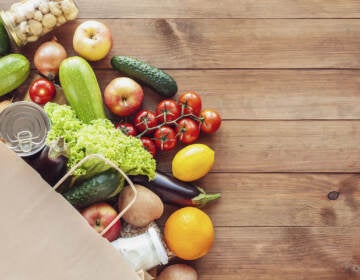Local food rescuers save tons of produce from going to waste
At the same time, business owners find themselves with food that will never be served, more children and adults find themselves in need of meals.
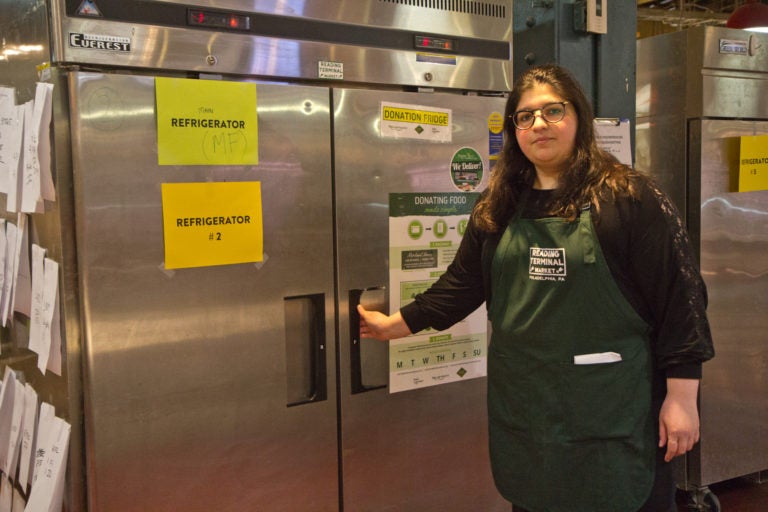
Layla El Tannir is the Special Projects Director at Reading Terminal Market. She is charge of food donations. (Kimberly Paynter/WHYY)
Andrew Butler’s car was packed with food: a case of bottled milk, plastic bags filled with slices of pizza, and several large paper bags filled with cucumbers, zucchinis, peppers, and herbs.
But these things weren’t his.
“There are several different donations, some from La Colombe — a lot of milk, a lot of coffee. The rest is from Reading Terminal,” Butler said Thursday while packing up the car at the terminal’s loading zone.
Butler is a driver for Food Connect, a local nonprofit that rescues food from going to waste.
“These are orders of produce that people haven’t picked up,” he said.
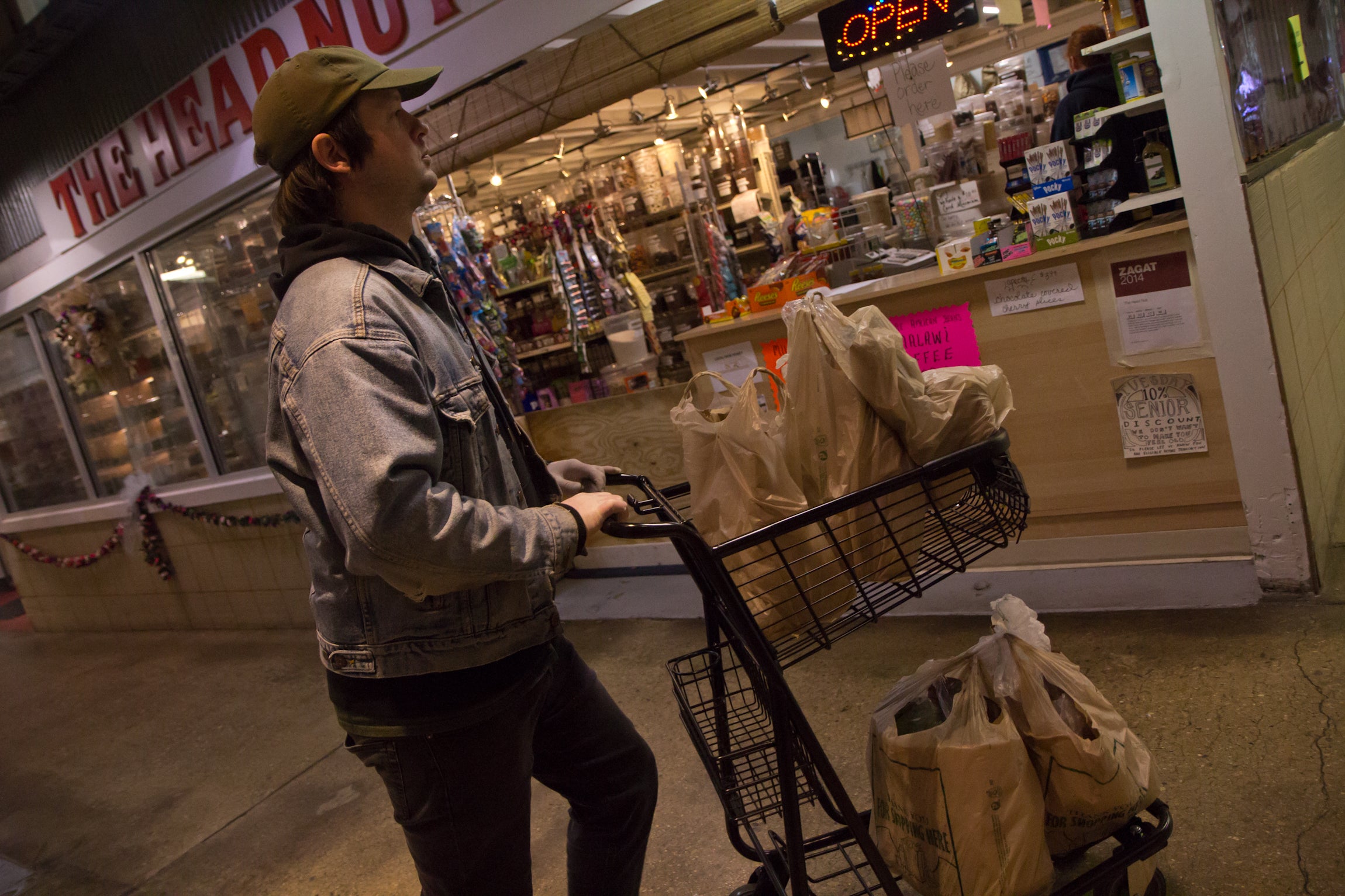
Tons of perfectly safe food have been on the verge of going to the landfill this week.
With hundreds of restaurants closing or limiting their services since Tuesday to stop the spread of the coronavirus, business owners have found themselves with refrigerators and pantries filled with fresh produce that will never get served. At the same time, children and an increasing number of adults are having less access to food, with schools and colleges closing and businesses letting employees go.
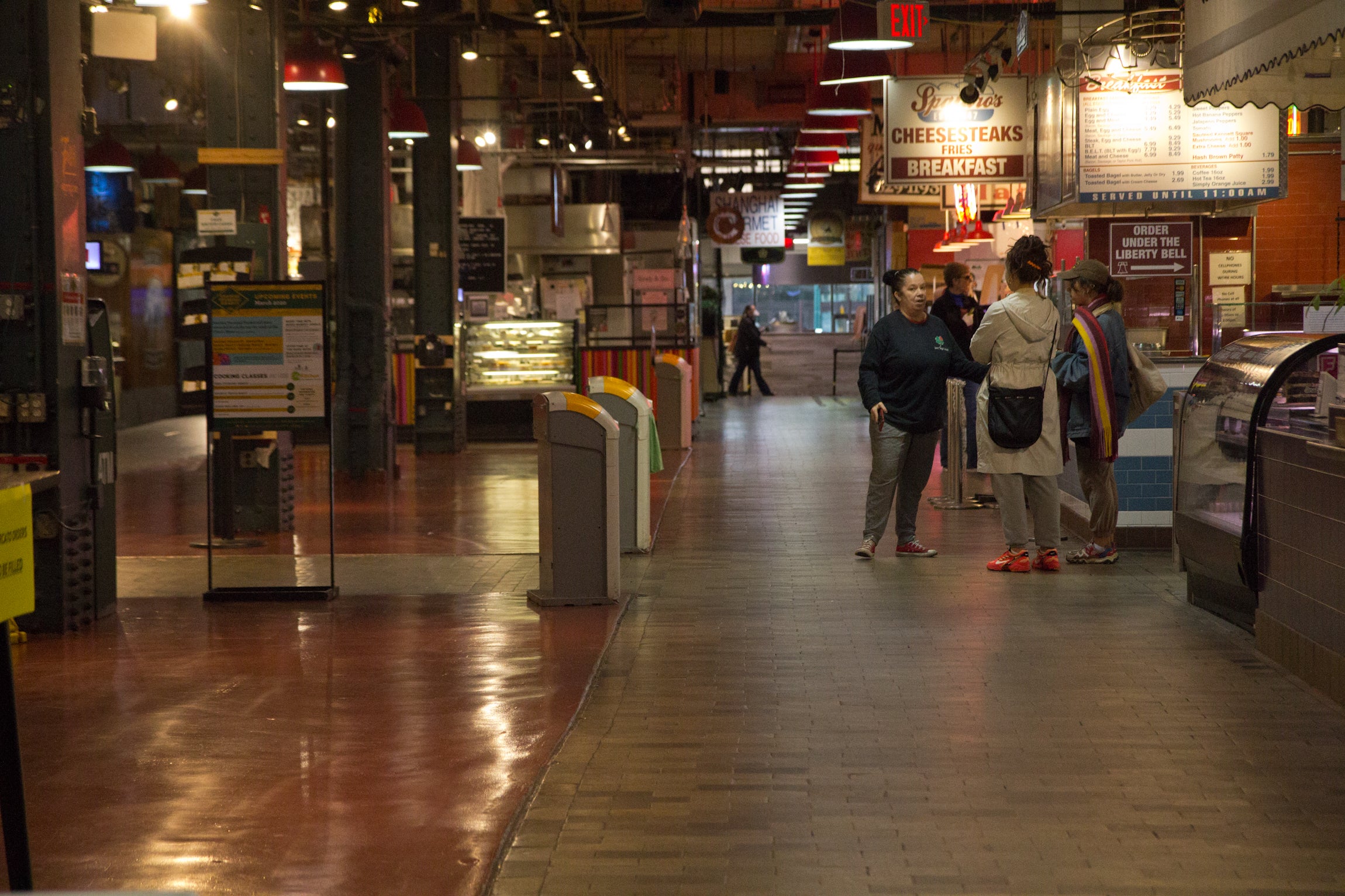
“This is extremely unprecedented,” said Abbe Stern, founder and director of Fooding Forward, a local organization that connects restaurants and hotels with food rescue organizations.
Regularly, nonprofits like Food Connect, Philly Food Rescue, Sharing Excess and Fooding Forward work with larger food banks like Philabundance, and with the city, to connect businesses and individuals with excess food with those who need it. But with the state’s COVID-19 restrictions, the amount of food in need of rescue has multiplied about 10 times since Tuesday.
Typically, restaurants have very little excess food — they use every bit of it. But the unexpected restrictions caught them loaded up with supplies. And some markets and food merchants have increased their orders to satisfy a peak in demand, so they are sometimes ending up with surplus themselves.
“There’s an exorbitant amount of businesses that are having this need that never had this need before,” Stern said.
Many of the businesses that called her this week didn’t have connections with food banks, shelters or pantries, Stern said, and had no idea what to do with huge amounts of produce, dairy and meat.
“And that’s what we have,” she said.
Megha Kulshreshtha, executive director and founder of Food Connect, said her organization is getting 30 to 50 pickup orders a day. Fortunately, since Monday, about 150 volunteers have signed on to help, for a total of 250 people at the operation.
“We don’t have days, we don’t have hours sometimes,” said Kulshreshtha. “If a restaurant is closing down, we need to make sure that that food finds a home very quickly. Coordinating is very crucial, otherwise, if the response time is too long, then that food gets thrown away.”
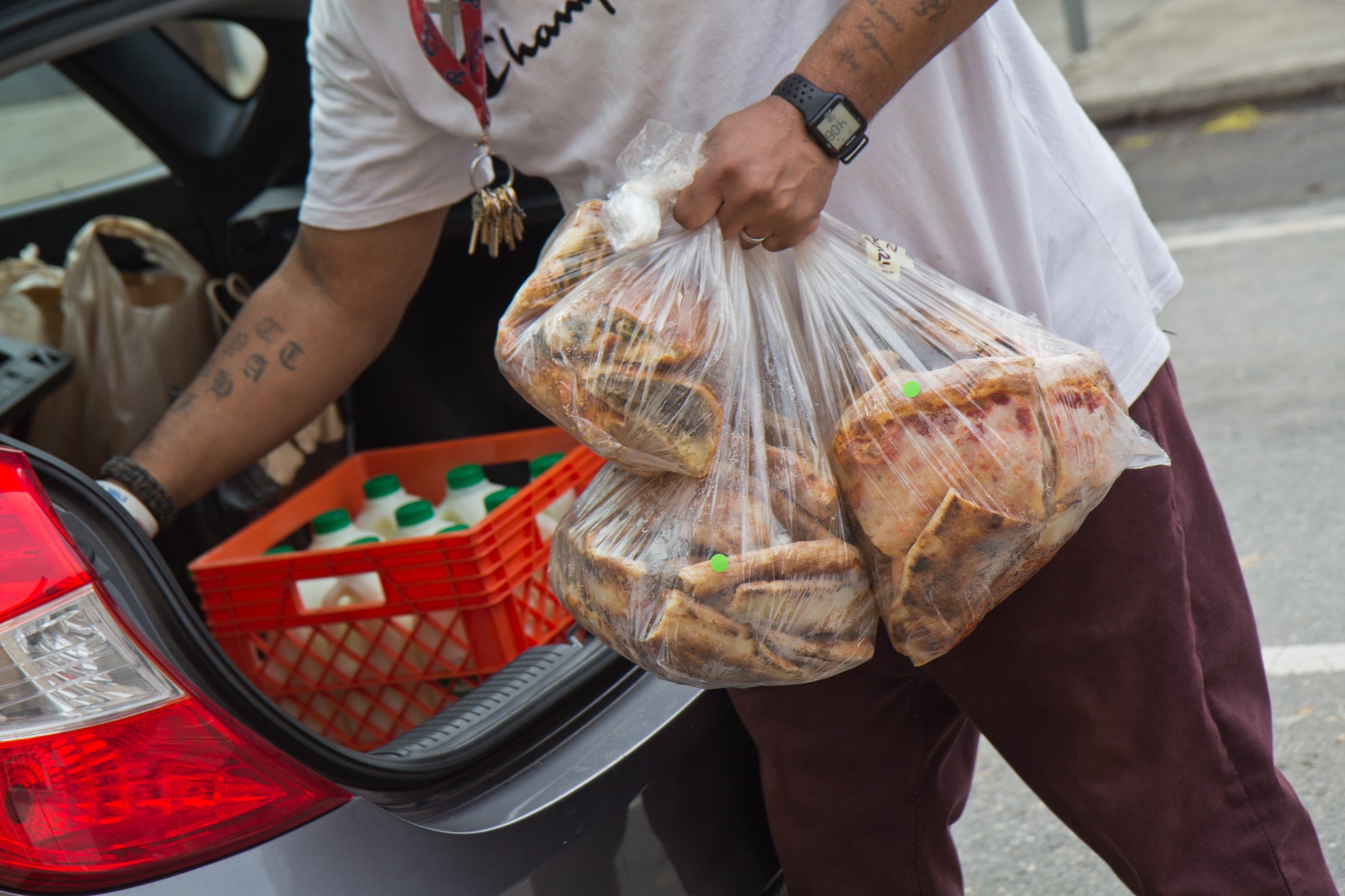
Partnering with Food Connect during this crisis has been crucial, said Philabundance’s Samantha Retamar. While the influx of food coming from businesses has grown with the number of people going to pantries to get food, the number of volunteers at the food bank has drastically gone down.
“Within the last two weeks alone, we lost over 250 volunteers, and we rely heavily on volunteers to help us pack food to get it out to our agencies,” she said.
Retamar said Philabundance is ensuring that its employees keep a safe distance at the warehouse and, as the other food rescue organizations, they are also implementing a no-contact delivery and pickup system to avoid spreading the virus. Still, 50 of their 350 agencies had closed by Thursday because many of them are run by senior citizens, who are more vulnerable to COVID-19.
“We are asking anyone that is healthy and willing to pick up food to consider being a volunteer driver,” she said. “We’re also pushing to have shelf-stable items because they would last folks a little bit longer: pasta, rice, peanut butter, jelly, beans, cans.”
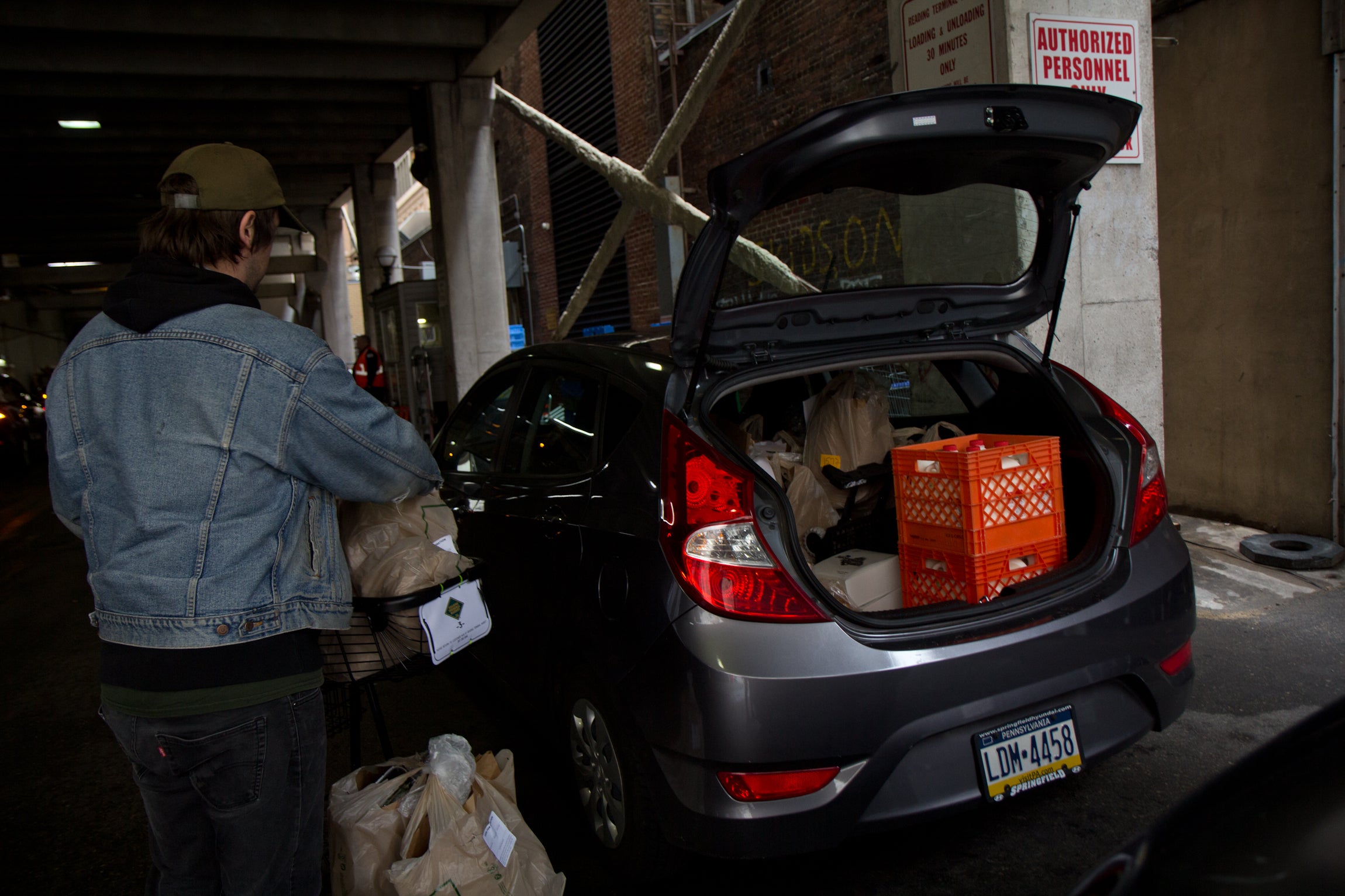
Shontae Smarr, founder and director of Philly Food Rescue, said this week has been a great challenge and an urgent call for more action. A West Philly shelter her organization works with was going to have to shut its doors because of lack of food, but Philly Food Rescue was able to hook it up with a substantial donation.
“It definitely has been a unique opportunity for our team to rethink how to get more food in a more efficient way, and coordinate with other agencies,” Smarr said.
After packing his car on Thursday, Butler drove to My Brother’s House, a homeless shelter run by Bethesda Project that serves 20 men in South Philadelphia.
“I got a lot of produce, coffee, milk, cookies, pizza,” Butler said after opening his trunk for the shelter’s crew to pick up the donations.
“We’ll take this milk, fresh herbs, peppers…,” said Kat Bowman, case manager for the shelter.
“Cookies?” asked Butler.
Bowman said nothing is business as usual now. There’s very little staff at the shelter, and no visitors are admitted. It regularly receives donations, she said, so the need hasn’t increased. But only randomly does it get things like the ones Butler was carrying.
“A lot of food donations we get are cans and things like that. So getting fresh produce and things like coffee, help people feel normal,” she said. “I know that they appreciate that a lot.”
WHYY is your source for fact-based, in-depth journalism and information. As a nonprofit organization, we rely on financial support from readers like you. Please give today.




![CoronavirusPandemic_1024x512[1]](https://whyy.org/wp-content/uploads/2020/03/CoronavirusPandemic_1024x5121-300x150.jpg)
